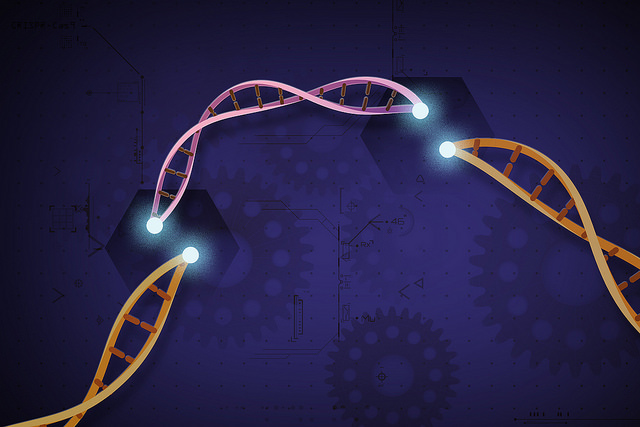On 6 December, Knowledge Ecology International (KEI) organised an interesting panel on the patentability of new gene- and cell-based medical therapies, as a side event during the 29th Session of the Standing Committee on the Law of Patents (SCP) of the World Intellectual Property Organization (WIPO).
The panel asked whether these therapies should be patentable according to the WTO TRIPS Agreement, and in particular, its Article 27.3(a), which permits WTO countries to exclude from patentability: (a) diagnostic, therapeutic and surgical methods for the treatment of humans or animals”. The panel was composed of James Love (KEI Director), Jayashree Watal (WTO Counsellor, Intellectual Property Division) and Dr. Els Torreele (Director of MSF Access Campaign).
Examples of gene- and cell-based therapies include therapies such as CAR T, involving autologous T-cell immunotherapy, or CRISPR, a gene editing tool, which is suspected of having been used with the twin babies recently born in China.
KEI showed that hundreds of patents had been filed or granted for these types of technologies but questioned this trend given that several countries, of all income categories, have included the exception of TRIPS Article 27.3(a) in their patent legislation in one way or another. The crux of the discussion was whether or not these new therapies fit the 27.3(a) criteria and, if so, are therefore excludable from patentability.
As a doctor “the oath is that you use any knowledge or skill you have to heal the patient,” said Torreele. “Thus those methods must be excluded from patentability.” The question at issue was if CAR-T or CRISPR constituted a therapeutic method [excludable under 27.3(a)], a medical product or process [patentable], or could potentially be simply ‘products-of-nature’ [not patentable].
The discussion focused on the CAR-T technology. With this therapy, a patient’s own cells are harvested from their body, re-engineered to fight a specific disease and then returned to the patient to treat their own specific disease. One the question debated was whether the cells are modified through this process. If not modified, they would remain “products-of-nature” and could not qualify as patentable inventions.
Given that both medicines using this technology are priced $373,000 and $475,000, non-patent approaches that delink R&D costs from prices, for example innovation inducement prize funds and market entry rewards, could have been more appropriate than patent awards to avoid unaffordable prices for promising technologies. It would for one thing put an end to the drive to turn medical acts into patentable commercial products.
Pascale Boulet, LLM, is a lawyer and an expert in patent searches and patent landscapes on medicines in developing countries, with over 20 years’ experience.
